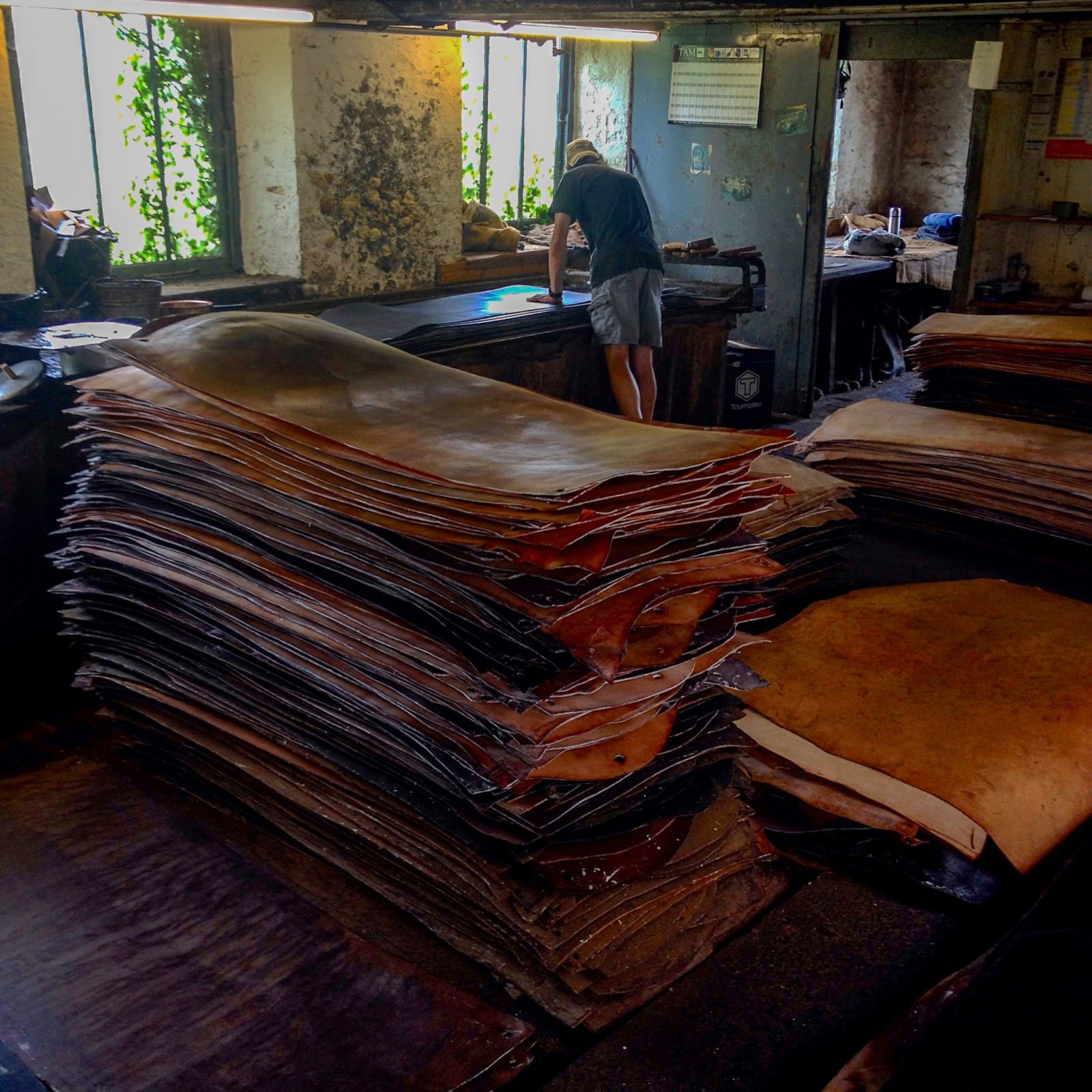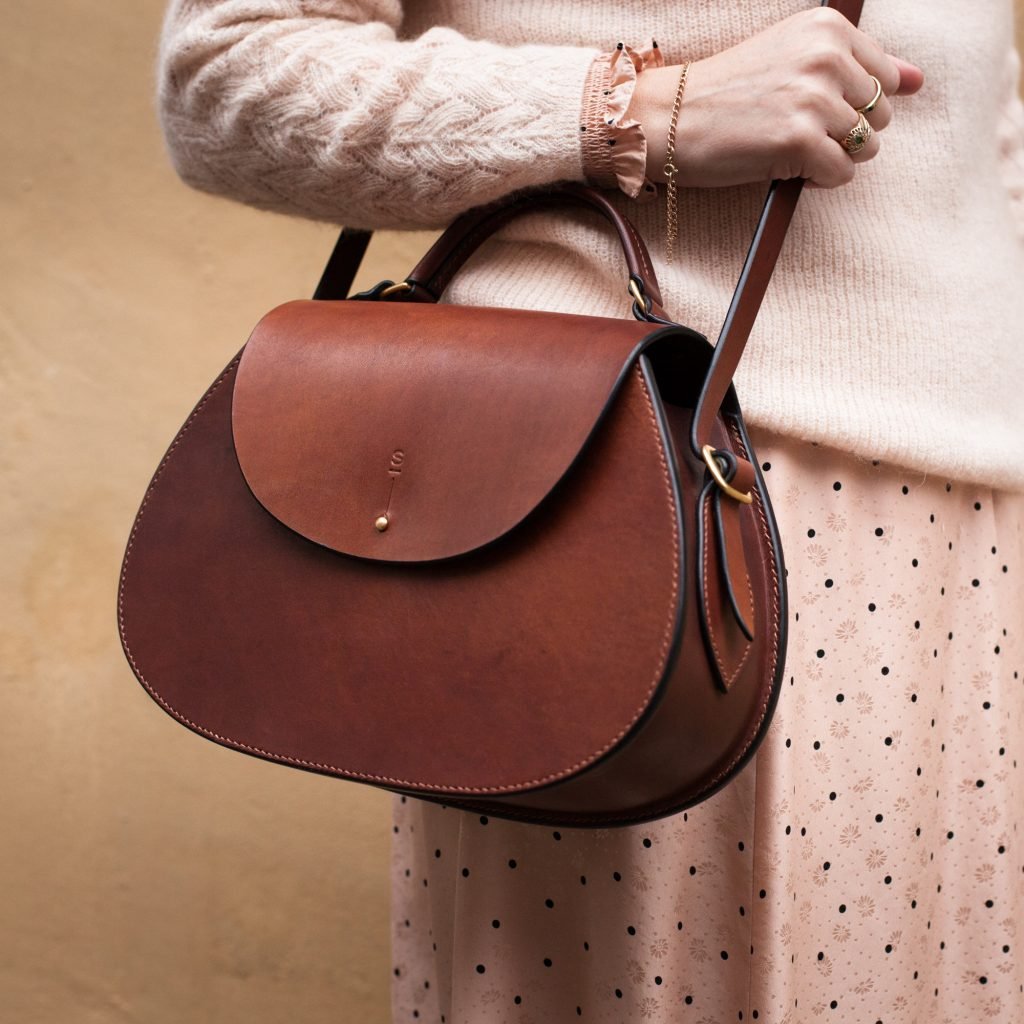THE HISTORY OF OUR LEATHER
that we use at Simeon Morris is a fascinating one, steeped in arcane knowledge and an English tradition which spans centuries. Oak bark tanned leather – what exactly, you may ask, is that? This is a unique leather, hailing from the last tannery of its kind in the UK.
THE PAST
In the past, bark tanning was more prevalent, and each country around the world would use the wood most available. For example, the unparalleled Russia leather produced in the 19th century, was tanned using bark from the Poplar Willow, or in Siberia, that of the Birch. Traditionally, in the UK, it was Oak bark. Now, at J & FJ Baker & Son Ltd, that ancient tradition continues. Since the early 19th Century, the same family have been producing leather using nothing but river water and oak bark chips. This is a sustainable and natural process that sees each hide take up to 14 months to be finished. This is much slower than even standard vegetable tanning, and produces an exquisite leather: strong, supple, breathable and fantastic to work with.

There has been a tannery on the same site as J & FJ Baker since Roman times. Amazingly, the mechanism which gently rocks the skins in their tanning pits is still powered by a water wheel in the nearby river. Any scraps of leather and wood waste is burnt to help heat the tannery. Without even really trying this is a truly sustainable process!
THE ABIGAIL BAG
All this history is lovely to read about, but in the end, what matters is the finished product. Only when you hold a piece made with Oak bark tanned leather can you truly see what we mean. The Abigail bag uses 4mm thick leather. This is pretty thick compared to most other handbags. However, you will notice just how supple it still is, even at such a thickness. Over time it will soften somewhat, as well as developing a slightly deeper colour and a glorious, lustrous patina.
CONTINUING STORY…
As you can see, the history of our leather is a fascinating one. We are proud to use this beautiful, English product, and honoured to be a small part in keeping this tradition alive.

